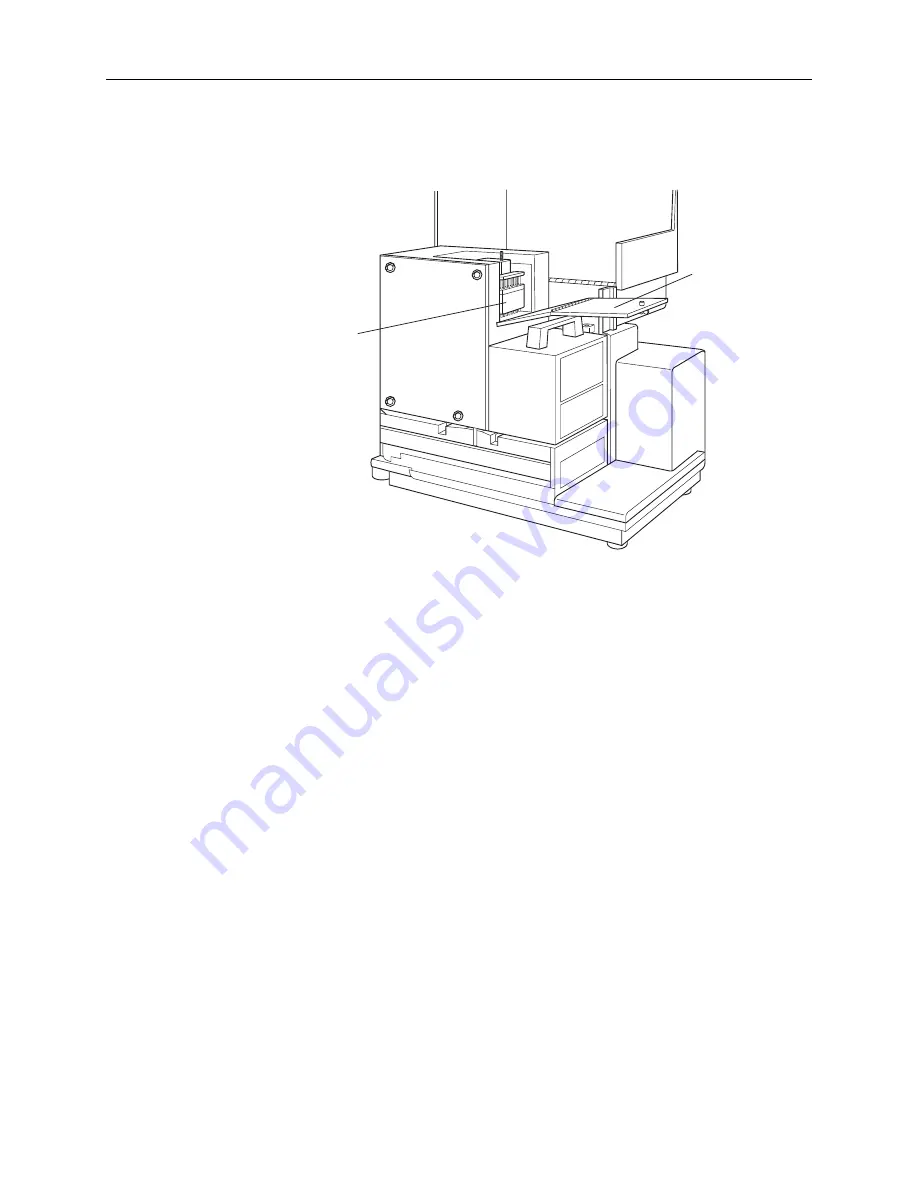
2 Installation Procedures
6 Close the top cover.
Bring the top cover back over the fluidics module and snap it into place at the handle on
the detection module. Make sure the latch clicks shut.
Eight- or
Sixteen-Channel
Pipettor Head
Inside Top Panel
Opened
Pipettor Head Installed
2.5 Setting Up the Computer
Set up the computer and monitor, according to the instructions that come in their
packaging. Place them close to the instrument on the bench.
The power cords for the computer and monitor are provided in the computer packaging.
Connect them to the computer hardware (see next section), but not to the power outlet
at the wall.
Caution:
Do not attach the computer to a power outlet until the computer and the
instrument are connected.
40
FlexStation II Operator’s Manual – Rev. D
Summary of Contents for FlexStation II
Page 6: ...FlexStation II Operator s Manual Rev D vi ...
Page 92: ...4 Applications 86 FlexStation II Operator s Manual Rev D ...
Page 102: ...5 Service and Maintenance Procedures 96 FlexStation II Operator s Manual Rev D ...
Page 124: ...6 Troubleshooting Procedures 118 FlexStation II Operator s Manual Rev D ...
Page 134: ...7 Appendices 128 FlexStation II Operator s Manual Rev D ...
















































